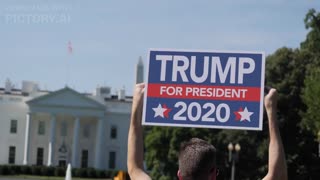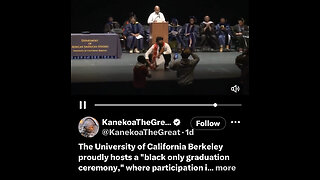Morning Coffee with Mike! World events ! what are they selling us !
Discussing world events is important for several reasons. In an increasingly interconnected and globalized world, being informed about global affairs allows individuals to have a broader perspective, make informed decisions, foster empathy, and actively participate in shaping the future. These discussions provide an opportunity to understand diverse perspectives, challenge our own beliefs, and contribute to a more informed and inclusive society.
Firstly, discussing world events helps individuals develop a broader perspective. By engaging in conversations about global affairs, people can gain insights into different cultures, societies, and political systems. This exposure promotes understanding and appreciation for the diversity of the world. It expands our worldview beyond our immediate surroundings and encourages us to think critically and analytically about complex issues. A broader perspective enables us to make more informed decisions and recognize the interconnectedness of global challenges.
Secondly, discussing world events is crucial for making informed decisions. Global events often have far-reaching implications that can affect individuals' lives, communities, and countries. By staying informed about these events, people can assess the potential impact on their personal and professional spheres. For example, understanding the economic policies of major trading partners can help businesses make strategic decisions, and being aware of international conflicts can shape individuals' opinions on matters of war and peace. Informed decision-making requires access to diverse perspectives, analysis, and reliable information, all of which can be gained through discussions on world events.
Furthermore, discussing world events cultivates empathy and understanding. When we engage in conversations about global affairs, we are exposed to different narratives, experiences, and struggles. This exposure fosters empathy as we begin to understand the challenges faced by people in different parts of the world. Empathy, in turn, promotes unity, compassion, and a sense of shared humanity. By discussing world events, we can bridge gaps in understanding and work towards a more inclusive and tolerant society.
Moreover, discussing world events allows individuals to actively participate in shaping the future. Global issues such as climate change, poverty, and human rights require collective action and international cooperation. By discussing these challenges, individuals can contribute to the formulation of solutions, mobilize support, and hold policymakers accountable. Engaging in conversations about world events empowers individuals to become informed advocates for change. Through sharing knowledge, raising awareness, and participating in meaningful debates, individuals can influence public opinion, drive policy reform, and inspire collective action.
Additionally, discussing world events promotes critical thinking and challenges our own beliefs. When we engage in conversations with people who hold different viewpoints, we are compelled to question our assumptions and biases. Constructive dialogue encourages us to examine our own arguments, seek evidence, and consider alternative perspectives. This process helps us refine our thinking, broaden our understanding, and develop a more nuanced and balanced worldview. By engaging in discussions about world events, we become more open-minded and receptive to different ideas and opinions.
Finally, discussing world events contributes to the creation of an informed and inclusive society. In an era of misinformation and fake news, open discussions based on reliable information and diverse viewpoints are essential for combating ignorance and promoting critical literacy. By engaging in conversations about global affairs, we can counter misinformation, challenge propaganda, and encourage fact-checking. Moreover, inclusive discussions that involve individuals from diverse backgrounds foster a sense of belonging, respect, and social cohesion. These conversations create space for marginalized voices, promote cultural exchange, and foster mutual understanding.
In conclusion, discussing world events is vital for several reasons. It broadens our perspective, enhances informed decision-making, cultivates empathy, encourages active participation, promotes critical thinking, and contributes to the creation of an informed and inclusive society. By engaging in conversations about global affairs, we become more knowledgeable, empathetic, and engaged citizens. In an interconnected world, discussing world events is not only important but also necessary to address the complex challenges we face collectively and work towards
-
 0:41
0:41
The Twist News featuring Erika Grey and Don Pravda
1 year agoSHORTS - European Parliament Gift Shop Tour
22 -
 26:11
26:11
OBBM Network Weekly News
1 year agoWhat You Probably Don't Know About Marketing Tech - OBBM Network News
61 -
 26:36
26:36
OBBM Network Weekly News
1 year agoAll About The Brand - OBBM Network News
76 -
 5:37
5:37
Latest News From CFP and INFOWARS
1 year agoMastering the Future: The Megalomaniacal Ambitions of the WEF
14 -
 1:16
1:16
The Twist News featuring Erika Grey and Don Pravda
1 year agoVisiting the largest hemicycle in Europe!
15 -
 3:30
3:30
newsque
1 year agoBREAKING NEWS: Donald Trump's Controversial Mother's Day Message Ignites Political Criticism
561 -
 49:22
49:22
RadioUnderland
1 year agoJake on the News 5/22/2023
396 -
 1:18:47
1:18:47
Derek O'Shea Show
1 year agoTim Scott just Bill Gates my Bezos over Trump! UNREAL BRO!
384 -
 25:36
25:36
OBBM Network Weekly News
1 year agoWhat is The 'Licking Game'? OBBM Network News
73 -
 2:08:05
2:08:05
SOMTV
1 year agoAn Exclusive Conversation w/ Rick Martin, Lt. Scott Bennett, & Lt. Col. Sandy Miarecki
99210